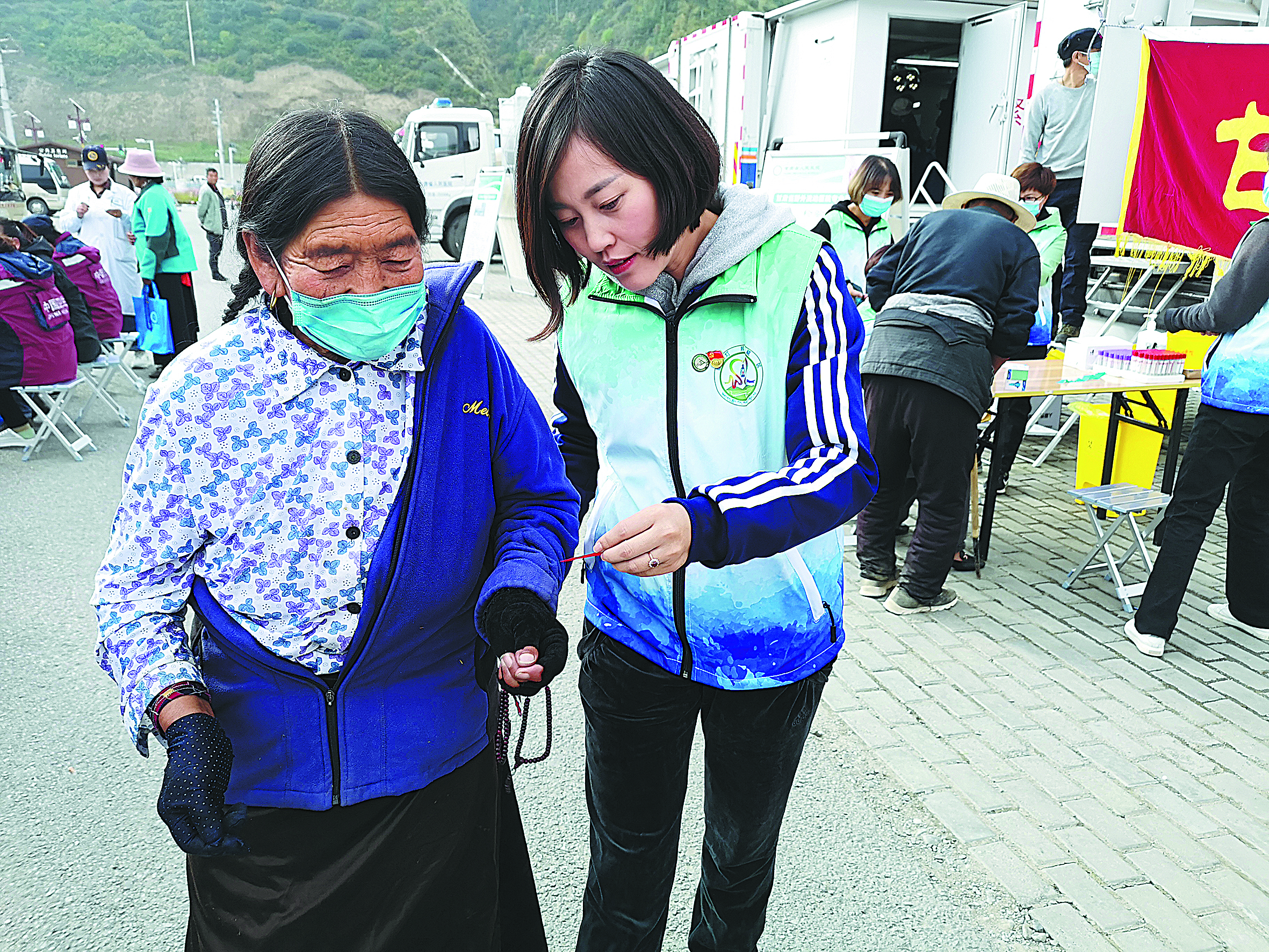Nurse honored by academy for advancing profession


Han also served as the Party secretary of a medical team dispatched from 2015 to 2016 by the provincial hospital to the Lintan county hospital in Gannan Tibet autonomous prefecture in Gansu.
There, she helped create rules and regulations to ensure the hospital's efficient and long-term development of nursing.
To improve the treatment of eye diseases, which were prevalent in the area, she secured funds and facilities for the hospital, which enabled it to greatly bolster its services.
With her encouragement, county doctors were later dispatched to the provincial hospital to learn how to treat such diseases properly. "The first difficulty we encountered at the hospital catering to the Tibetan community was the language barrier. We tried to use gestures instead of speaking quite as much," Han said.
After she arrived, she noticed that many of the local women needed to learn more about breastfeeding and chronic disease prevention.
"We found that Tibetan mothers knew little about breastfeeding. They usually fed newborns zanba, a dish made from roasted highland barley flour," she said.
Han and her teammates held training sessions to spread breastfeeding awareness. With the help of rubber babies and breasts, the medical team showed mothers the right way to breastfeed.
"We tried to involve as many local nurses as possible so they could learn for themselves and then continue to teach after we left," Han said.
Based on fact-finding conducted while she worked at the hospital, Han developed a training package that includes courses on management techniques, health education and an on-site guide to providing long-term support to the hospitals in Gannan.
To date, more than 800 nurses have attended the training sessions. Together with one-on-one instruction, many of them have broadened their expertise.
At the provincial hospital, Han upgraded nursing procedures to provide the best service possible.
Previously, for example, if a patient needed to have a small operation, between registering at the outpatient department, having a checkup, making an appointment and paying for the surgery, they had to go to several different locations, which was both tiring and time consuming.
"We set up a one-stop service window for patients who need small operations where they can complete all the procedures, including surgery," Han said.
"By streamlining the procedures, we strengthened the quality of nursing and laid the foundation for nursing safety."
The patient satisfaction rate now exceeds 98 percent, according to the provincial hospital.
Han, who is also the dean of the School of Nursing at Lanzhou University, has fostered relationships with medical schools in countries including Sweden, Japan and Australia. "We will continue to promote communication to help our students develop an international perspective," Han said.
She said she hopes to train more quality nurses and encourage the spread of quality services at the grassroots level to benefit as many people as possible.























